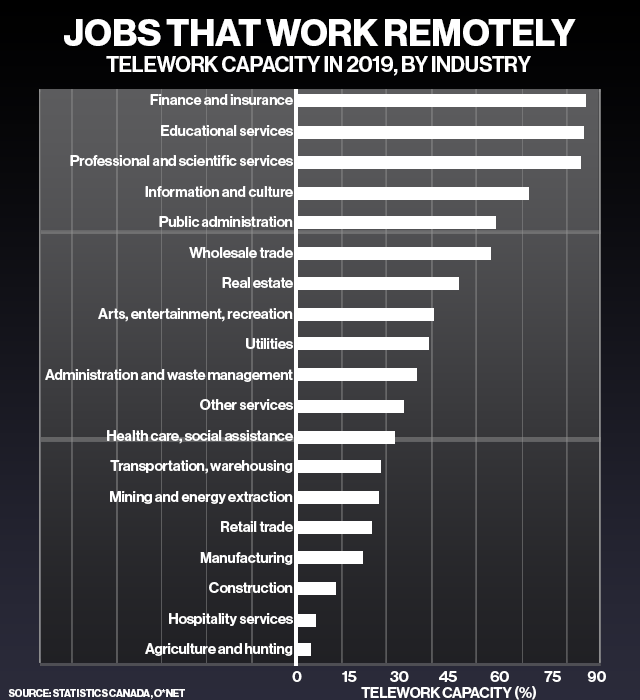Re: The future of work
NARROWING THE RACIAL DIVIDE
Unemployment during the pandemic has also taken a disproportionate toll on visible minorities. This prompted StatsCan to take the unprecedented step of gathering labour force data by race starting in July, bringing it in line with the U.S. Bureau of Labor Statistics.
A new societal focus and acknowledgement of the need for more diversity, equity and inclusion came after the killing of George Floyd, an unarmed Black man in the U.S. who died at the hands of police.
Leaders of some country’s biggest employers publicly stated support for the Black Lives Matter movement and vowing to do more to dismantle systemic racism.
Demand for investigations, restorations and proactive programs related to diversity, equity and inclusion have quadrupled since May. There is now a “deeper level of understanding” of systemic racism for many businesses.
The events of 2020 were the catalyst for a collective “awakening” leading to optimism that the “positive changes” that many organizations undertook will carry into 2021.
“A lot of the diversity was at the lower echelons of an organization, the entry-level roles or contract roles that were more temporary than permanent. Conversations have erupted and I don’t think it's going to be a flash in the pan,” she says.
If this year was one of examination and awakening, next year may be categorized by more intense scrutiny of firms that simply maintain the status quo.
“If employers just move the shells around for optics, I think they’re going to be held to account,” she says.
“Down the road there will be significant fallout and lost trust, which is going to further destabilize workplace cultures which have already been ravaged by the pandemic.”
NARROWING THE RACIAL DIVIDE
Unemployment during the pandemic has also taken a disproportionate toll on visible minorities. This prompted StatsCan to take the unprecedented step of gathering labour force data by race starting in July, bringing it in line with the U.S. Bureau of Labor Statistics.
A new societal focus and acknowledgement of the need for more diversity, equity and inclusion came after the killing of George Floyd, an unarmed Black man in the U.S. who died at the hands of police.
Leaders of some country’s biggest employers publicly stated support for the Black Lives Matter movement and vowing to do more to dismantle systemic racism.
Demand for investigations, restorations and proactive programs related to diversity, equity and inclusion have quadrupled since May. There is now a “deeper level of understanding” of systemic racism for many businesses.
The events of 2020 were the catalyst for a collective “awakening” leading to optimism that the “positive changes” that many organizations undertook will carry into 2021.
“A lot of the diversity was at the lower echelons of an organization, the entry-level roles or contract roles that were more temporary than permanent. Conversations have erupted and I don’t think it's going to be a flash in the pan,” she says.
If this year was one of examination and awakening, next year may be categorized by more intense scrutiny of firms that simply maintain the status quo.
“If employers just move the shells around for optics, I think they’re going to be held to account,” she says.
“Down the road there will be significant fallout and lost trust, which is going to further destabilize workplace cultures which have already been ravaged by the pandemic.”

Comment